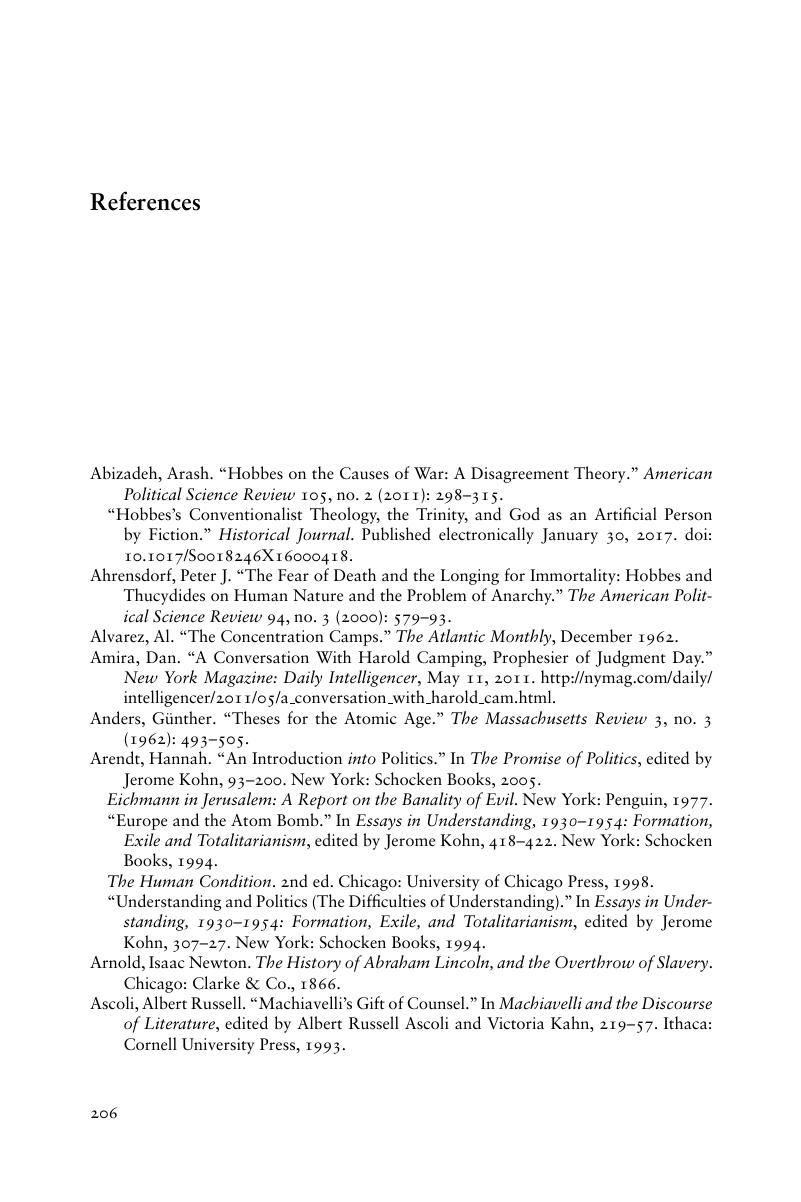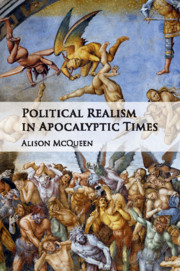Book contents
- Political Realism in Apocalyptic Times
- Political Realism in Apocalyptic Times
- Copyright page
- Dedication
- Contents
- Figures
- Acknowledgments
- 1 Introduction
- 2 Understanding the Apocalypse
- 3 Machiavelli's Savonarolan Moment
- 4 Hobbes “At the Edge of Promises and Prophecies”
- 5 Morgenthau and the Postwar Apocalypse
- 6 Conclusion
- References
- Index
- References
References
Published online by Cambridge University Press: 20 December 2017
- Political Realism in Apocalyptic Times
- Political Realism in Apocalyptic Times
- Copyright page
- Dedication
- Contents
- Figures
- Acknowledgments
- 1 Introduction
- 2 Understanding the Apocalypse
- 3 Machiavelli's Savonarolan Moment
- 4 Hobbes “At the Edge of Promises and Prophecies”
- 5 Morgenthau and the Postwar Apocalypse
- 6 Conclusion
- References
- Index
- References
Summary

- Type
- Chapter
- Information
- Political Realism in Apocalyptic Times , pp. 206 - 227Publisher: Cambridge University PressPrint publication year: 2017



